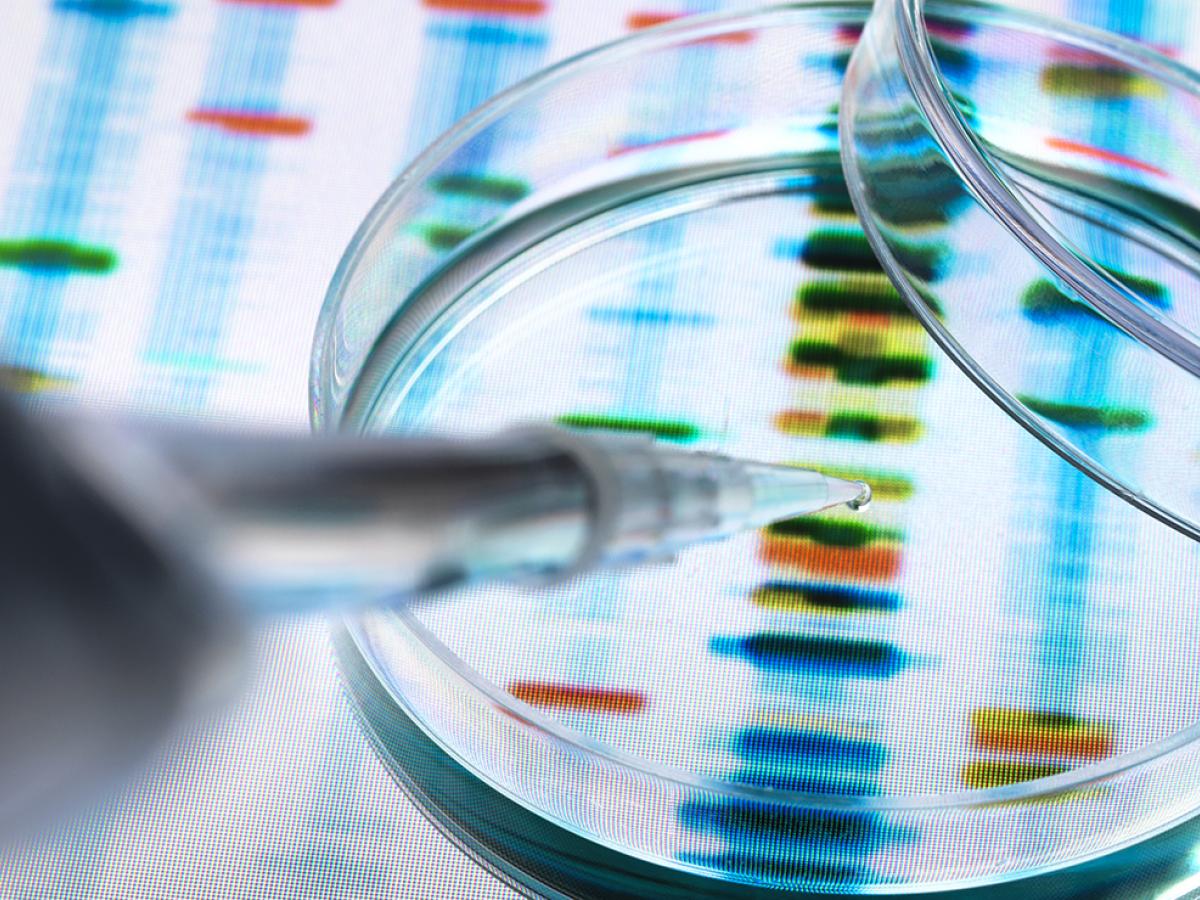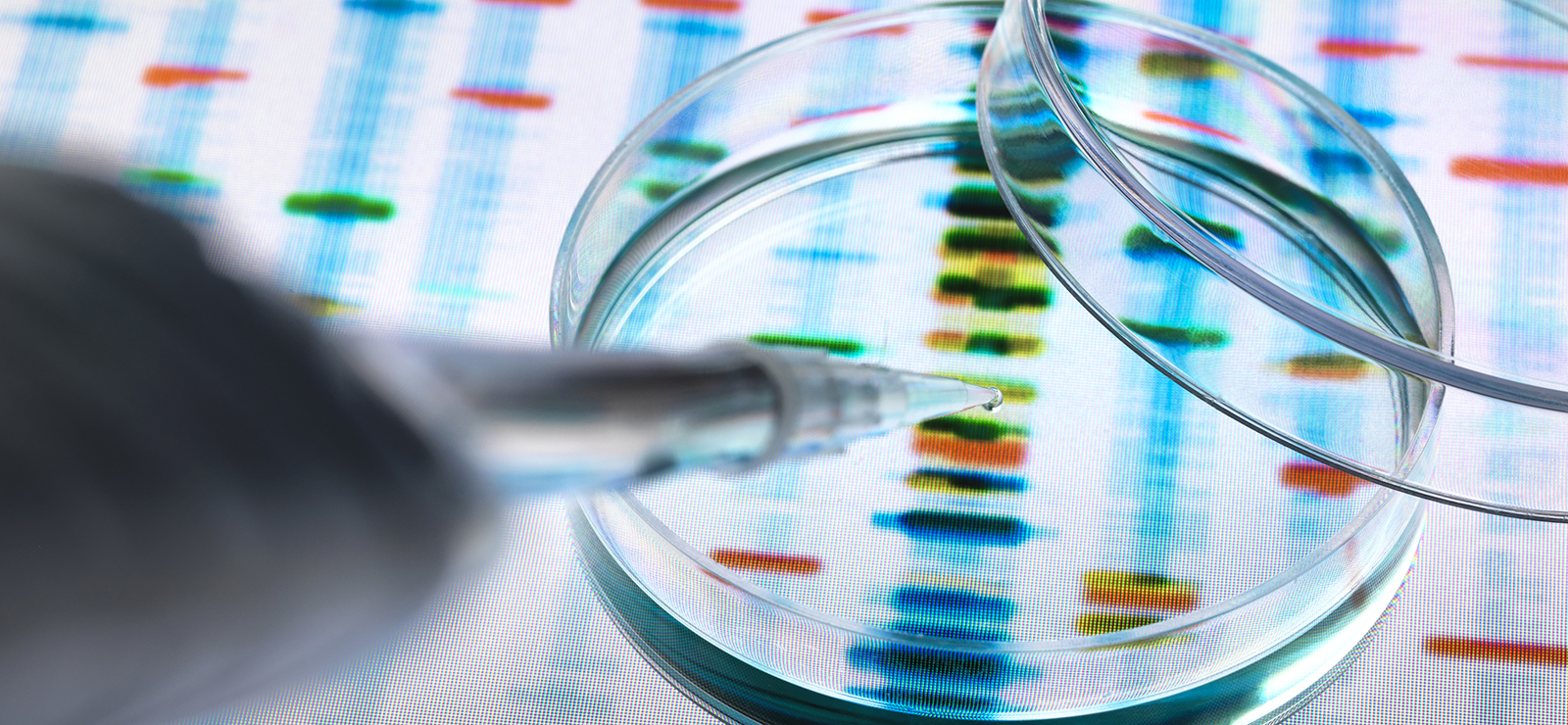January 27, 2022

A one-size-fits-all approach doesn't work for most things in life. If it did, we might all have identical haircuts or be expected to fit into the same bathing suit (yikes). Luckily, personalization isn't limited to what we wear or how we look — and when it comes to your health, personalization can be lifesaving.
Individualized medical care is not necessarily new. It's how you get eyeglasses that improve your eyesight and the right type of blood in a transfusion. But new advances in medicine use personalization at a cellular or molecular level to treat and prevent serious diseases like cancer and autoimmune disorders. Doctors can tell if you're likely to develop certain diseases or conditions. What's more, they can predict with some certainty how you'll react to some treatments and even whether they will work at all.
This approach to health is called personalized medicine or precision medicine. And it's increasingly becoming the key to predicting, preventing, treating and managing diseases.
Here's what you need to know:
What Is Personalized Medicine?
Many disease treatments and prevention strategies are created with the average patient in mind. But what works for one person may not work for another. If a dozen people take the same medication for heart disease, cancer or seizures, they could each have a different response. One may have severe side effects, while another has little reaction. The medicine may shrink a tumor in one person but have no effect in another. These differences often come down to tiny changes in one gene or even one protein in a person's cells.
Precision medicine allows doctors to tailor treatment and preventive care based on an individual's genetic information, environmental influences and lifestyle factors. Let's say tests show that someone has an inherited BRCA gene mutation. BRCA genes suppress tumors and fight cancer. A mutation means the BRCA gene isn't working normally, raising the person's risk for breast, ovarian and other cancers. Knowing someone has that mutation can guide preventive measures and treatment decisions if needed. Women with BRCA mutations might have more frequent and more detailed breast imaging than women with average breast cancer risk, for example.
Doctors use personalized medicine to arm themselves with specific information about the disease and the individual being treated. That way, they can target or prevent the disease in the most effective way.
Why Is Precision Medicine Important?
An individualized approach to medicine takes the trial-and-error out of patient care. Doctors use diagnostic testing to identify genetic factors and biomarkers (or biological signs) that indicate how you'll respond to certain medications or therapies. The alternative is trying treatment after treatment until you find the one that works.
But the benefits of precision medicine reach beyond treatment. Doctors also use it to:
- Assess risk for specific diseases to begin preventive measures when necessary
- Prevent disease by identifying effective steps toward prevention
- Detect disease early on a molecular level before signs or symptoms emerge
- Diagnose disease and identify its characteristics to understand what makes it grow and what stops it
- Manage patients after treatment to avoid progression when tests show that the disease is likely to come back
How Does Personalized Medicine Work?
A personalized approach to medicine depends on understanding each patient's unique make-up and lifestyle. One way to do that is biomarker testing, which measures objective medical signs that show what's happening in a person's body (as opposed to going by symptoms). Biomarkers include things like blood pressure and cholesterol levels, as well as specific genetic changes that influence treatment or increase the risk of a specific disease. Doctors use the tests for many reasons, such as learning about tumors to guide cancer treatment or measuring changes in the brain to diagnose Alzheimer's disease years before symptoms arise.
Personalized medicine also takes into account a patient's family history and behavior or lifestyle. Curious what that looks like in action? Check out a few stories happening at MU Health Care:
Keeping Christie's Cancer From Growing
Christie McCullough, a resident of Columbia, remained hopeful throughout her journey with breast cancer. Her cancer diagnosis revealed that she had an aggressive type of breast cancer, called HER2-positive, that grows and spreads quickly. But that information also guided doctors to treat the cancer with a type of precision medicine called targeted therapy. While chemotherapy killed the cancer cells, the targeted treatment kept the cancer from growing. Read Christie's story.
Preventing Paul's Cancer From Returning
Surgery, chemotherapy and radiation treatments helped Columbia resident Paul Penn battle and beat the rarest and most aggressive form of thyroid cancer. Now, precision medicine is making sure it doesn't return. After evaluating Paul's tumor and finding a genetic mutation, doctors prescribed targeted therapy to keep his cancer away. Read Paul's story.
Looking to the Future With Precision Medicine
Personalized medicine has drastically improved treatment for some diseases and types of cancer. But for many other diseases, there is still no alternative to trial-and-error or one-size-fits all treatments.
The good news is that precision medicine is a rapidly changing field. As treatments and technology continue to advance, the benefits of personalized medicine for patients will continue to grow.
Next Steps and Useful Resources
- Want to learn more about personalized medicine near you? Learn more about NextGen Precision Health and how it's bringing precision medicine to MU Health Care patients.



